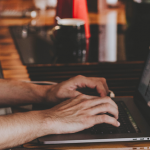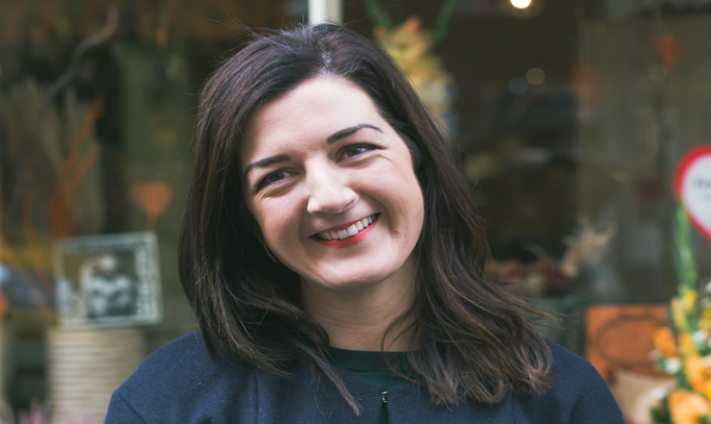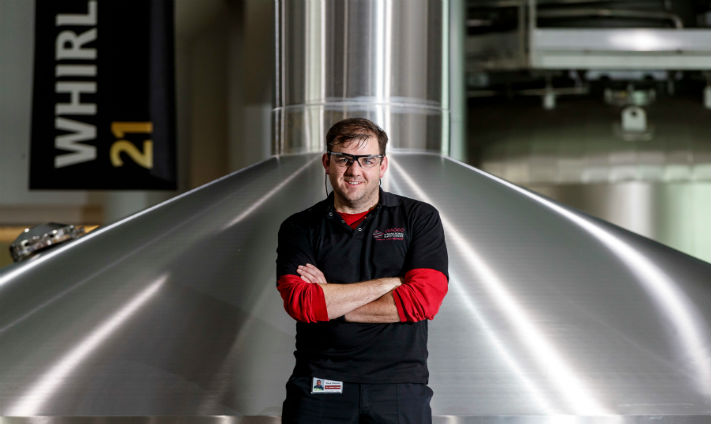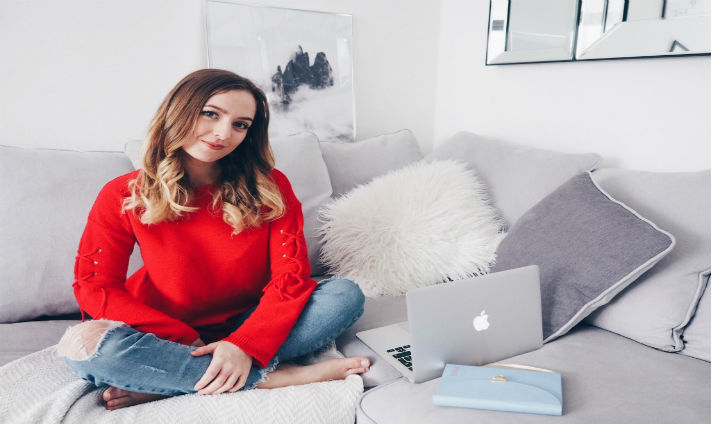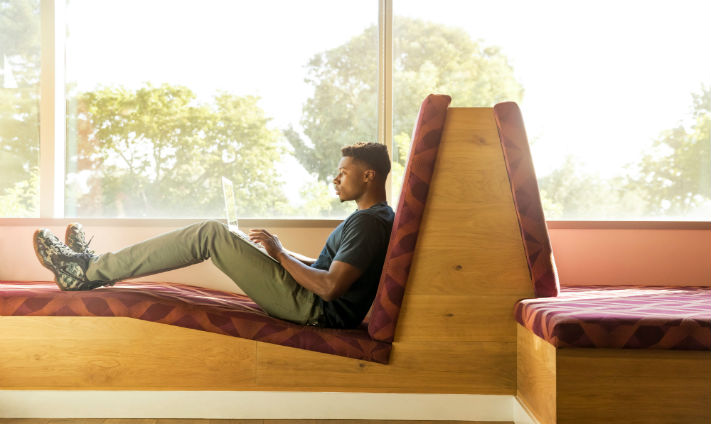For this month’s “How I Got My Job” series we interviewed Connor McGovern, Assistant Editor at National Geographic Traveller, UK.
If you’re a budding travel writer (or just curious about what the role entails), keep reading.
What did you want to be when you were younger?
Bizarrely, a dentist.
Have you always been interested in travel?
I suppose you could say travel runs in the family. My grandmother used to be an air hostess in the ’50s and would show me her old maps, flying logs and luggage tags, accompanied by stories about places like Sudan and India and Singapore.
Many of my own childhood memories are also of holidays: medieval towns in Normandy; fingers sticky with fudge in Dorset; waterfalls in rural Catalonia. We didn’t really go anywhere particularly far-flung for our holidays, but all this exposure to travel opened my eyes to what was out there and gave me an unshakable fascination with the world.
Did you go to college?
When I realised the dentist thing wasn’t going to work out (chemistry isn’t my forte), I ended up studying studied French, German and Spanish at the University of Exeter.
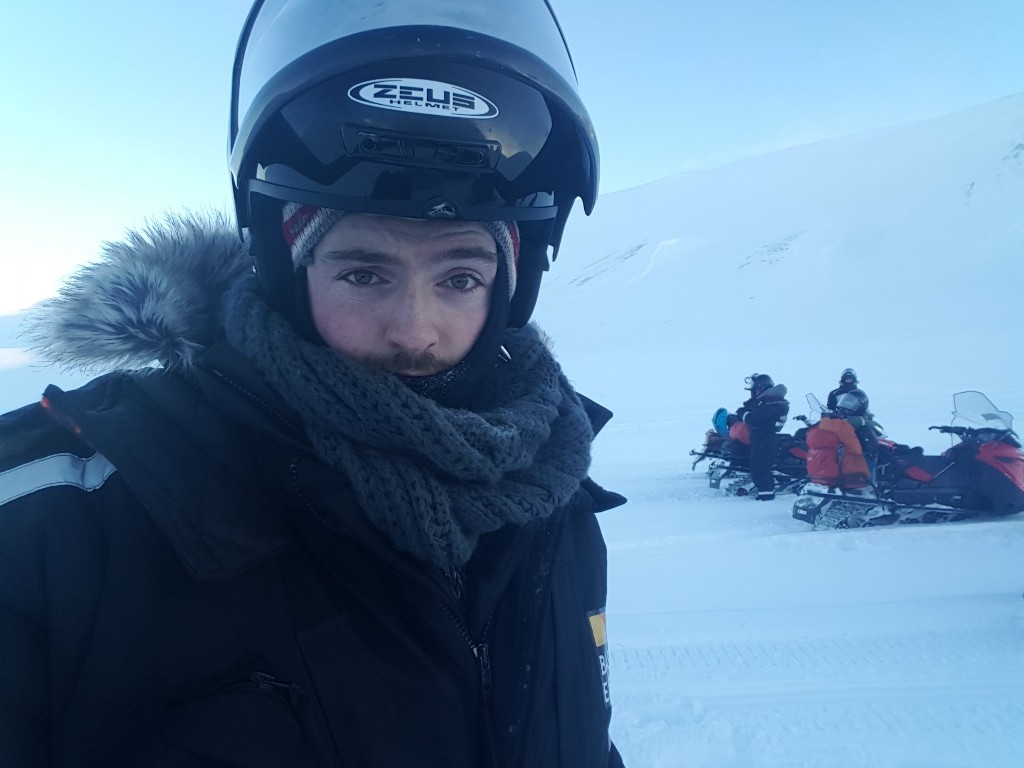
Snowmobiling in -28° in Svalbard, Norway.
Talk us through your career to date.
Whilst I was at university, I joined the student paper, which gave me ample opportunity to write about everything from news on the university’s mental health research to cafe reviews and hangovers (the latter a field of expertise).
During the Easter and summer holidays, I sought work experience and internships: first starting at a local magazine and then progressing to bigger publications such as Rough Guides and Lonely Planet Traveller magazine. It set me up well for life after graduation, when I managed to get an internship at my current company. They asked me to stay on as the editorial assistant before becoming an assistant editor on National Geographic Traveller (UK) a year later.
It’s gone smoothly so far, which is funny as I never made a conscious decision to enter this line of work; it was just a natural development that combined my love of travel and language.
What skills do you need to become an assistant editor?
Obviously, a natural flair for words is key, as is attention to detail and the ability to thrive with looming deadlines. You’ll need to be able to make quick decisions, manage your time well and think outside the box. Also, communication is key – working on a newspaper or magazine is a truly collaborative effort between editors, subeditors, designers, production staff, clients and salespeople, so the product will suffer if you aren’t able to work well within a team.
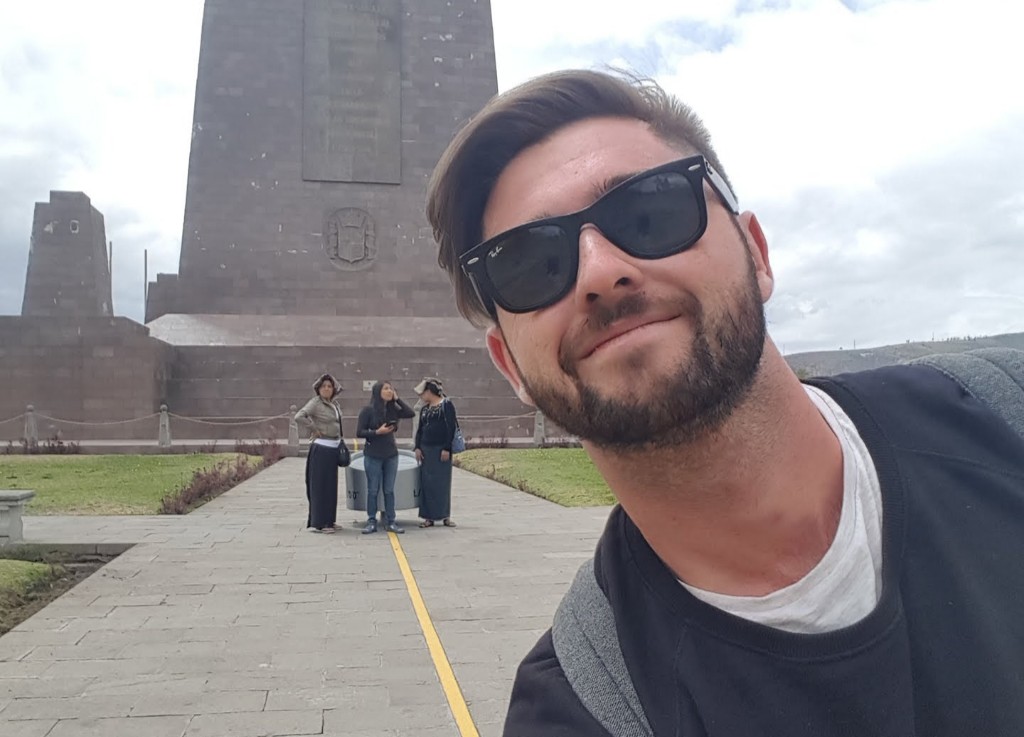
At Mitad del Mundo in Ecuador. The yellow line divides the northern and southern hemispheres.
What are the best and worst parts of your job?
The best part of being a travel writer probably goes without saying. Who wouldn’t love to travel the world? Writing up a story after a trip and then seeing it beautifully come together in print never gets old. I’ve been lucky enough to visit places from Svalbard to Tel Aviv and Alderney to Ecuador. But as with any job, there’s always time-consuming, fun-sapping admin that has to be done, but nobody can get out of that.
What’s the biggest misconception people have about your job?
That I’m always living it up in five-star hotels or jetting off in first-class. In truth, I’ve never even flown in business class, let alone first class! The travel aspect of my job is probably only 5%; the rest of the time I’m in the office, busy working on the next issue. We have a bank of trusted freelance writers who are the ones off discovering the world for a living, so they’re the ones to envy!
Has working at National Geographic Traveller UK been everything you thought it would be?
I’d had experience with magazines, so I had a vague idea of what to expect, but there was still so much I had to learn. What the hell is Intelligent Flatplan? What’s a DPS? How does a magazine feature even come into being? How far in advance do publications work? Probably, and rather naively, I expected more travelling with my role, but working intensively on the magazine has been just as eye-opening: so much work goes into your favourite mag that you have no idea about.
What’s a typical day like?
Cliche alert – but there are no two days the same in our office. I’ll get to work – double espresso, please – and wade through my emails, which can range from pitches from freelance writers to press releases, correspondence from clients on projects I’m working on, invitations to events or press trips, updates from my colleagues and a whole load of other things.
If I’m working on the next issue, I’ll check and see how the pages I’m responsible for are coming along – this could involve editing copy from a writer, writing something myself, checking in with the design team and subeditors, or getting it approved by the editor and ready for printing on press day.
I might have meetings with the team to discuss progress, problems, or ideas for future issues. There’ll be content from the previous issue to upload to the website. I might have to prepare one of the weekly newsletters, or moderate one of our reader events after work.
In the evenings, there might be a networking event to attend, which are usually hosted by a tourist board, an airline, a hotel group or a PR agency. The travel industry is very small and interconnected, so they are a good way to forge good relations and share news and ideas.
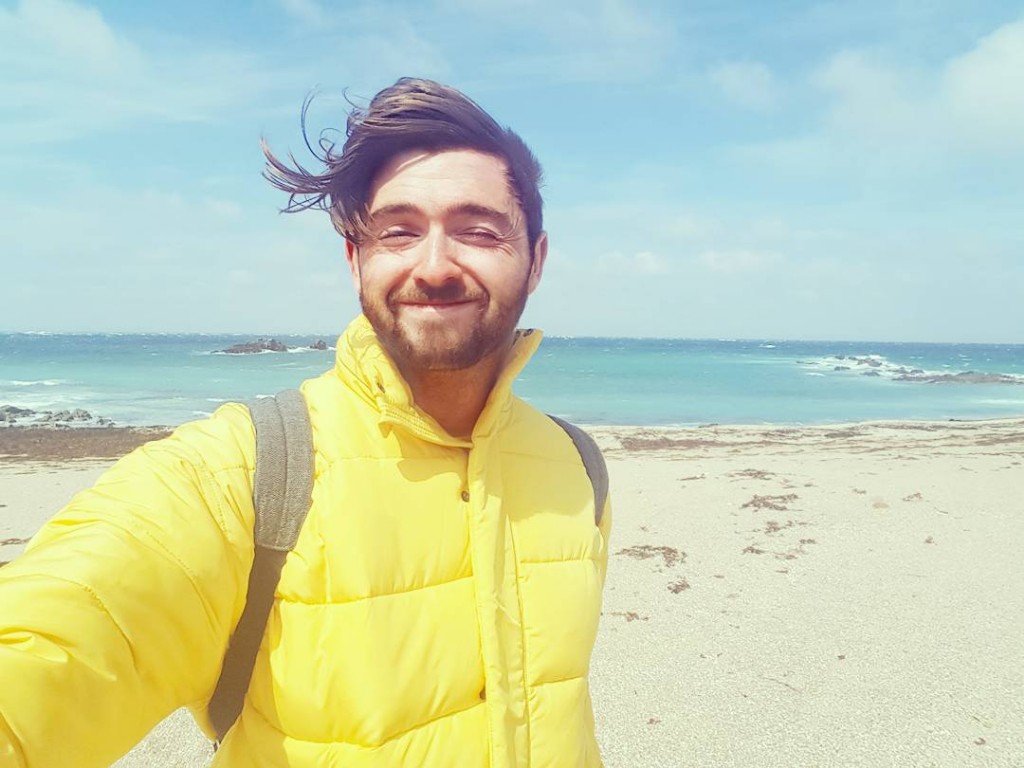
On the beach in Alderney, Channel Islands.
Is your job 9-5 or always on?
My working hours are 9am ’til 5.30pm, but workload means I might end up having to stay a little later. This is especially true on press day when we need to make sure everything’s ready to go the printers before we leave.
How do you get a good work-life balance?
I don’t have work emails on my phone. Checking them at the weekend creates unnecessary stress as nine times out of ten, there isn’t anything that can’t wait until Monday. I might have to write up pieces at the weekend, but it’s rarely a chore as this is the reason I love what I do.
Who has been your biggest role model?
My Year 9 German teacher, Mrs Kilpatrick, has been hugely influential in my life. She realised my knack for languages when I was 14 and offered to tutor me for GCSE French on Wednesdays after school. I then also did a Spanish GCSE under her tutelage. It’s because of her that I did the degree I did and, in part, have ended up where I am now. She gave up her time to help me when I was at school, and having someone believe in you at that stage in your life is truly empowering.
What’s the biggest career lesson that you have to date?
Enjoy what you do. You’ll spend a lot of your life working, so make sure you find something that satisfies you. Money is important, but for many of us, it’s not enough to get us out of bed in the mornings. Plus, journalism is notoriously badly paid, so you’ve got to enjoy it!
What advice would you give to someone who wants to be an editor?
Firstly, you need to have a curious mind. Whatever type of journalism you want to get into, you need to like asking questions and knowing answers as these are what’ll shape that killer story or captivating feature.
Secondly, get your name out there. Whether it’s a blog, social media, attending events, or getting involved editorially with your local or university paper, this is how you’ll start your reputation, accruing experience along the way.
Lastly, make sure you’ve got a thick skin. Accept criticism of your work, which is hard when your words bear a part of your soul, but it’s all part of the journey that’ll make you a better writer or editor. Journalism is hugely competitive, which means you’ll face rejection, but don’t take it personally. Keep knocking on doors and believe me, eventually one will open and your career will begin.

